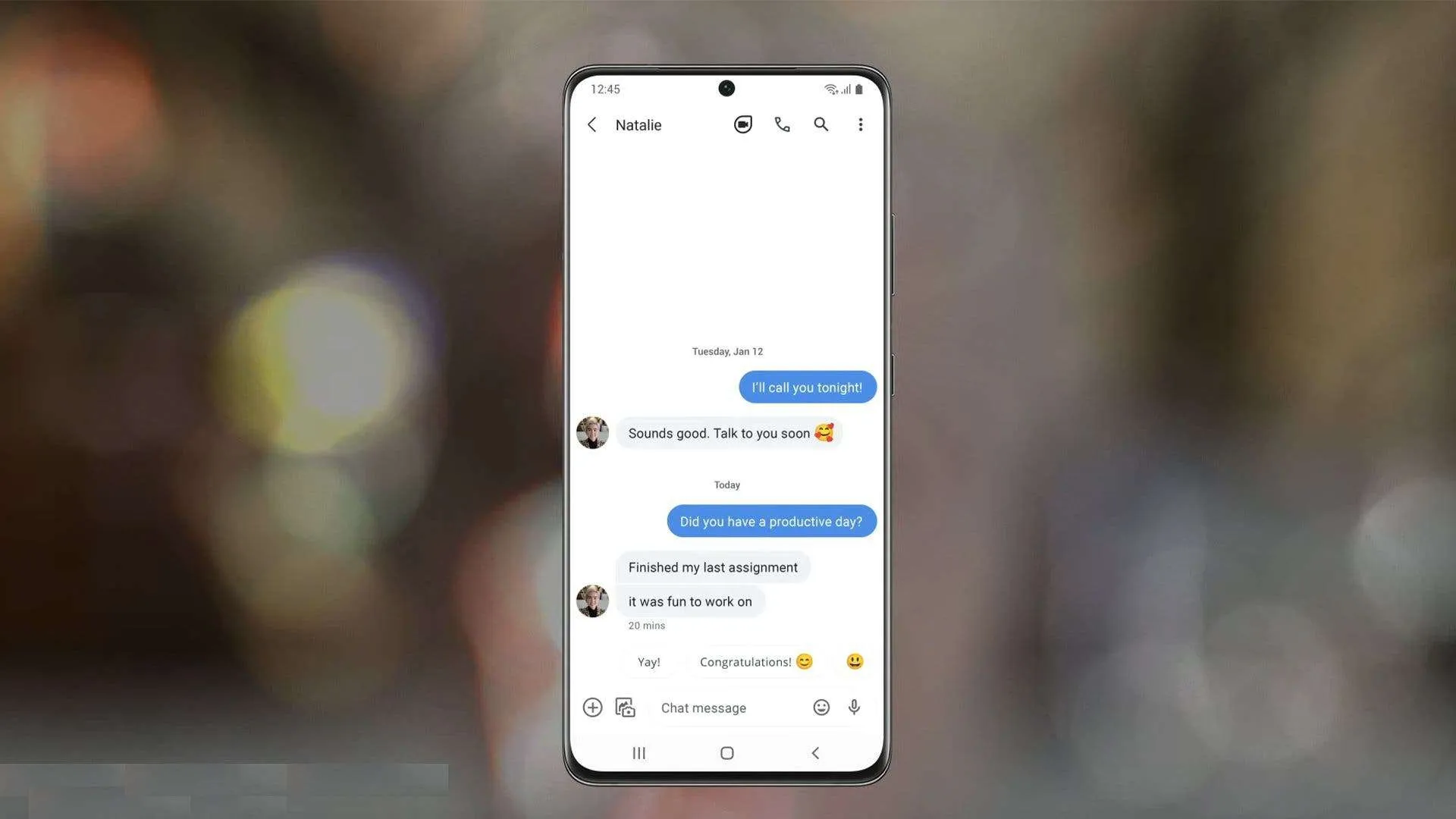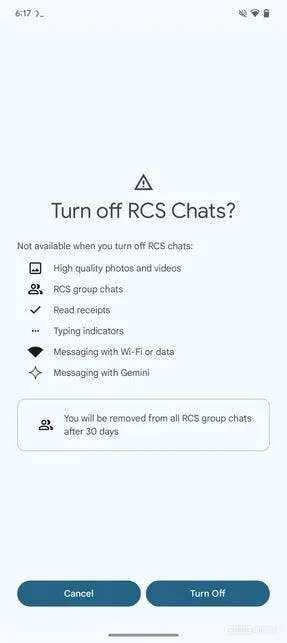Google Messages Warns Users About Losing RCS Group Chats When Disabling the Feature
PhonesTuesday, 25 June 2024 at 06:40

Google Messages has introduced a new warning for its users regarding the potential loss of RCS (Rich Communication Services) group chats when the feature is disabled. This update aims to ensure users get relevant information about the implications of turning off RCS, especially as the service expands its user base with the support on iPhones through the stable iOS 18 release.

RCS: A Significant Upgrade Over SMS
RCS has long been heralded as a substantial improvement over traditional SMS. It brings modern features such as read receipts, typing indicators, and the ability to send high-resolution images and videos. These enhancements make RCS a compelling choice for users seeking a more sophisticated messaging experience. With iPhones expected to support RCS soon, it's crucial for users to understand the benefits of keeping RCS enabled and the consequences of disabling it.
The Consequences of Disabling RCS
When users disable RCS, they risk losing access to their RCS group chats. This isn't immediately apparent to many, leading to potential confusion and data loss. Specifically, if RCS remains inactive for 30 days, the system will automatically remove the user from any RCS group chats they were part of. The company is now clearly passing this message in the latest Google Messages beta. There is a warning screen alerting users of the impending loss of group chat access after the 30-day period.
Deregistering from RCS
For users who need to switch phones, particularly between Android and iOS, we recommend that you turn off RCS. If RCS isn't inactive before switching devices, all messages may continue to deliver to the old phone, causing inconvenience. Google provides a quick way to deregister from RCS, which immediately removes the user from all RCS group chats. This can be a strategic move for those looking to exit group chats intentionally, albeit with the trade-off of losing all other RCS benefits.
The Need for RCS Awareness
Understanding the implications of disabling RCS is crucial as the service gains wider adoption. Google's new warnings aim to prevent the sudden loss of group chat access without the knowledge of users. This move reflects a proactive approach to user education, ensuring that the transition to or from RCS is as smooth as possible.
Conclusion
As RCS continues to evolve and expand its user base, particularly with the anticipated inclusion of iPhone users, it's essential for users to be fully aware of the feature's dependencies and potential pitfalls. Google's new warning about the loss of RCS group chats when the feature is inactive underscores the importance of staying informed. By clearly communicating the consequences and providing tools for deregistration, Google is helping users navigate the complexities of modern messaging with greater confidence and ease.
Popular News
Latest News
Loading



